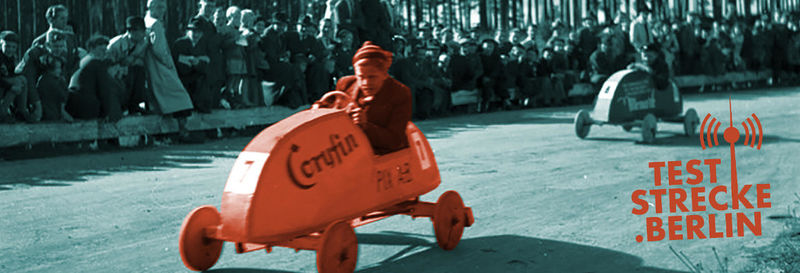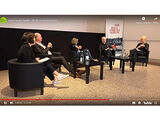teststrecke.berlin – Science Communication in the Humanities
Program
Thursday, 24 Sep 2020, 13.30
Pit stop 1: Exchange
Within the exchange we present and discuss different formats of science communication in the humanities and cultural sciences. Science communicators and those who want to become science communicators exchange information about current projects, discuss opportunities, obstacles and the basics for successful project-specific science communication, and have the opportunity to network. The focus is on the exchange of information about concrete ongoing science projects and plans in the Berlin area.
Friday, 25 Sep 2020, 10.00–13.00, closed event
Pit stop 2: Round Table
The communication of research findings in the humanities is subject to different requirements than the communication of newly gained scientific or technical findings. However, there is not yet any real understanding of the specifics of this form of science communication. The Round Table offers stake holders from science, journalism and politics the opportunity to discuss the conditions and strategic objectives of science communication in the humanities.
Friday, 25 Sep 2020, 16.00–17.30, livestream from the Museum für Kommunikation
Pit stop 3: Panel discussion
In the panel discussion, which will be streamed from the Museum für Kommunikation, we will bring together three outstanding personalities from the fields of history, cultural studies, and literary studies who use various innovative communication formats to communicate their findings and/or reach a broad audience in the traditional way.
We ask to what extent the humanities bear a social responsibility and what role the communication of results in the humanities plays in social cohesion. Together we will discuss appreciation, moments of happiness and frustration in science communication, resistance and open doors. We are interested in how the panelists have found suitable formats and media for their research. Which networks and resources did they have access to? And how do formats of science communication and interaction with a broad public affect research in the humanities?
Participants:
Jens Rehländer (VolkswagenStiftung, Hannover, Head of Communication)
Barbara Stollberg-Rilinger (President of the Wissenschaftskolleg zu Berlin, Chair of Early Modern History at the Westfälische Wilhelms-Universität Münster)
Joseph Vogl (Speaker of the DFG Graduiertenkolleg 2190 “Literatur- und Wissensgeschichte kleiner Formen”, Humboldt-Universität zu Berlin, Chair of Literature and Cultural Studies/Media at the Humboldt University of Berlin)
Moderation: Kristiane Hasselmann (SFB 980 "Episteme in Bewegung") and Anja Schaluschke (Museum für Kommunikation Berlin)
Current information on the panel discussion can be found on the teststrecke.berlin website.
Fig. above: CeDiS, Freie Universität Berlin

